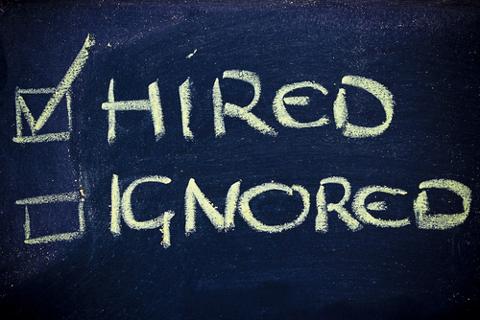Resumes perform one function and one function only: They get you the phone interview. How do resumes do that? They demonstrate that you can do the job by showcasing your job skills and demonstrating that you can produce business results with these skills. I've just reviewed a bunch of resumes from people on my private mailing list. It was a privilege, but also enlightening to see the types of changes required to improve a resume. Do you know the biggest problem with most of the resumes? Organizing and presenting the person's job skills. Remember, a resume needs to prove you CAN do the job, and the way that is done is by matching your job skills with those on the job description. Yes, some descriptions have what seems like a thousand requirements. But the deal is the same: the more "check marks" you have against the skills in the description, the more likely you are to get the phone interview. Consider the person — or resume-reading program — reviewing your resume. That person most likely does not know the job's complexities as well as either you or the hiring manager. That person most likely can't tell that you can program like you were an expert at 3-dimensional chess, so they compensate: does your resume say you can program using (insert program language here)? They can't tell if you are a project manager extraordinaire, but they can check that you have a PMP on your resume because the job description prefers having that certification. It's check marks. Since the person who will decide if you get a phone interview is looking at your job skills to see how they match up, doesn't it make sense to help that person (and machine) easily find your job skills? There are two ways to organize your job skills so that it's as easy as possible to match them and get that check mark. Let's take a look at each.
1. One section for job skills
Job skills are hidden all over your resume, inside the job descriptions for each of your employers. You did X project management methodology at one client and Y project management methodology at another. Both of those methodologies are job skills — but they get lost if they just stay inside your professional experience section. Better to take those two job skills and all the others on your resume and consolidate them into one section titled "Job Skills." Because they are now in one section, it's easy for the person to find all of your job skills in the resume. Also, keeping them with the specific employers reinforces your qualifications — and makes it more likely that the resume-reading machine will see that job skill as a keyword. Now that you have all the job skills in one section, say, using a table or a column, there is one more important piece to do: Categorize the job skills. Most of us have more than one set of job skills. If you are a programmer, you program in multiple languages. Thus, "programming languages" can be a category. List each language as a bullet point below the heading. You also have base office skills, such as proficiency with Microsoft Word, Excel, PowerPoint, and Visio. "Software" becomes a job category, and you can add not only Microsoft apps, but others (SAP, Oracle, tools used for programming, etc.). Because you have categorized your job skills, you make it exceptionally easy for a resume reviewer to match your skills with those in the job description.
2. Get the job skills needed from sample job descriptions
Sometimes, job skills are difficult to define. Indeed, the differences between job skills, responsibilities, and business results often become muddled. If you want to know which job skills are needed for a specific role, my suggestion is to print 10 job descriptions from Dice.com that most closely represent the type of work you want. Then, look at the requirements for the job. Almost all of those are job skills, except Education. This includes Certifications and "soft" skills used in team building. "Working well with tight deadlines" may not seem like a job skill, but it is. Business is social and how you work with others and under what conditions are important to success in the company culture. Thus, you need to list those soft skills under the category of "Team skills" in your job skills section. It's a check mark. Once you have all of the skills from the job descriptions listed, how many check marks from your resume match your list? All? Some? How many skills are on that description list that you also have — but are not on your resume? They need to be added. It's a check mark.
Getting your job skills right increases your chances of getting the phone interview
The fastest way you can improve your resume is to list all of your job skills on your resume so they better match up to the job description. Plus, make those job skills easy to find by placing them in their own section of the resume. How well are your job skills represented on your resume?


